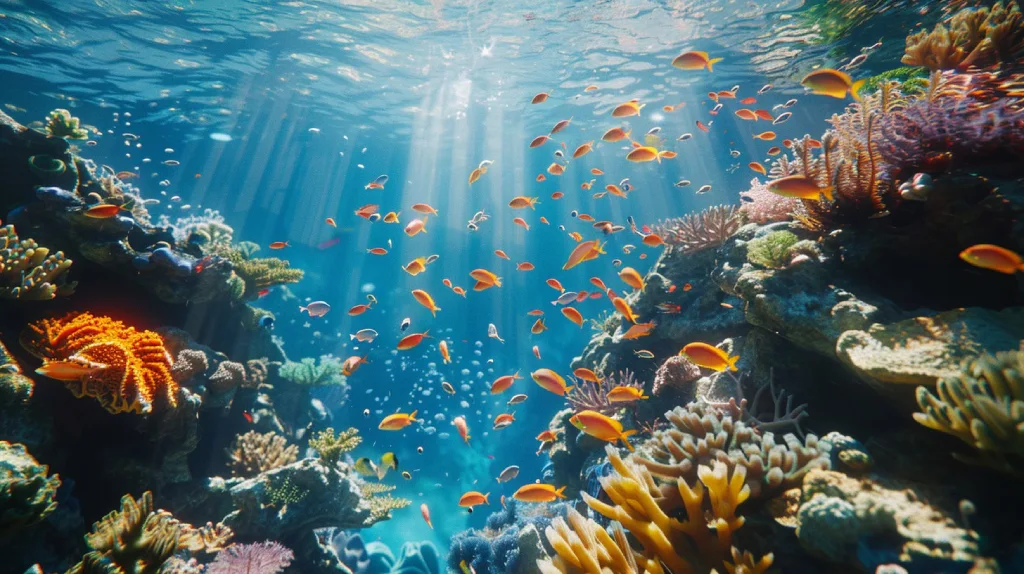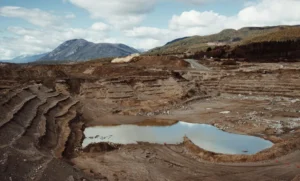
A responsible action towards the aquatic environment is to avoid polluting waterways with harmful substances. This can include avoiding from dumping trash, chemicals, or other pollutants into lakes, rivers, or oceans.
Our rivers, lakes and oceans are amazing and vital for many living things. Responsible actions toward the aquatic environment aren’t just about being responsible but it’s about protecting the aquatic conservation and the balance of life itself.
Protecting our precious aquatic environments is super essential for everyone. They’re in danger from climate change and pollution but mostly due to our activities and irresponsibility. We need to change the way we treat water.
Top 10 Actions to Protect the Aquatic Environment
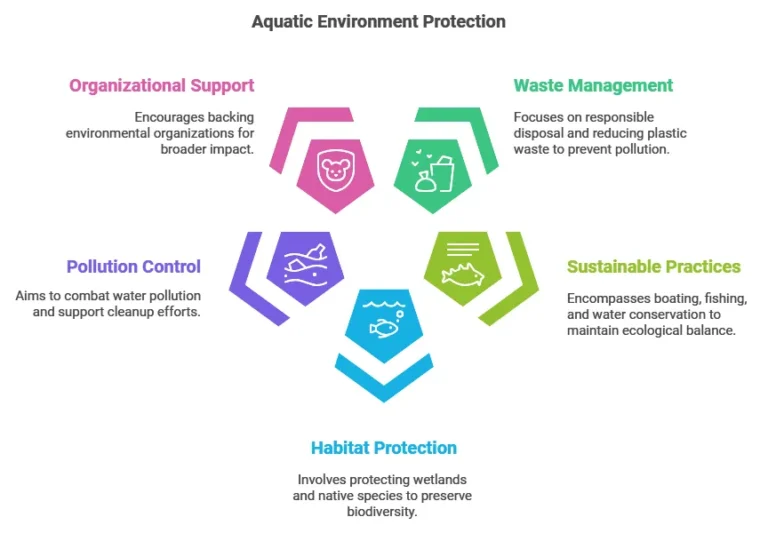
1. Responsible Waste Disposal
Responsibility to the Aquatic Environment
Responsible waste disposal is crucial for aquatic life. This means using designated bins or practicing proper waste management. Trash harms aquatic creatures and ecosystems, making water bodies unsightly and endangering marine life.
Improper Waste Disposal Damage
- Improper waste disposal damages aquatic ecosystems.
- Toxins and pollutants contaminate water.
- Marine life faces risks.
- Pollution increases disease risks.
- Recreational activities and tourism suffer.
The Lifespan of Waste in Water Bodies
- Paper decomposes in 2 to 4 weeks.
- Wax-coated paper takes longer than paper.
- Glass bottles take over 500 years to degrade.
- Tin cans take up to a century to decompose.
- Aluminum cans last 200 to 500 years.
- Plastic items, including six-pack rings, can linger for about 450 years.
Risks of Petroleum Products
- Minor spills degrade water quality significantly.
- One gallon of gasoline can contaminate 750 gallons of drinking water.
- A quart of spilled oil can cover an area as large as three tennis courts for up to two years.
Responsible Actions
- Choose reusable items to cut down on waste.
- Reuse things whenever possible.
- Recycle oil, aluminum, glass and antifreeze at recycling centers.
- While on board, dispose of trash properly after returning to a shore.
- Reduce single-use plastics in water environments.
- Dispose of fishing line responsibly.
- Support local waste management initiatives.
- Support aquatic conservation.
2. Sustainable Boating
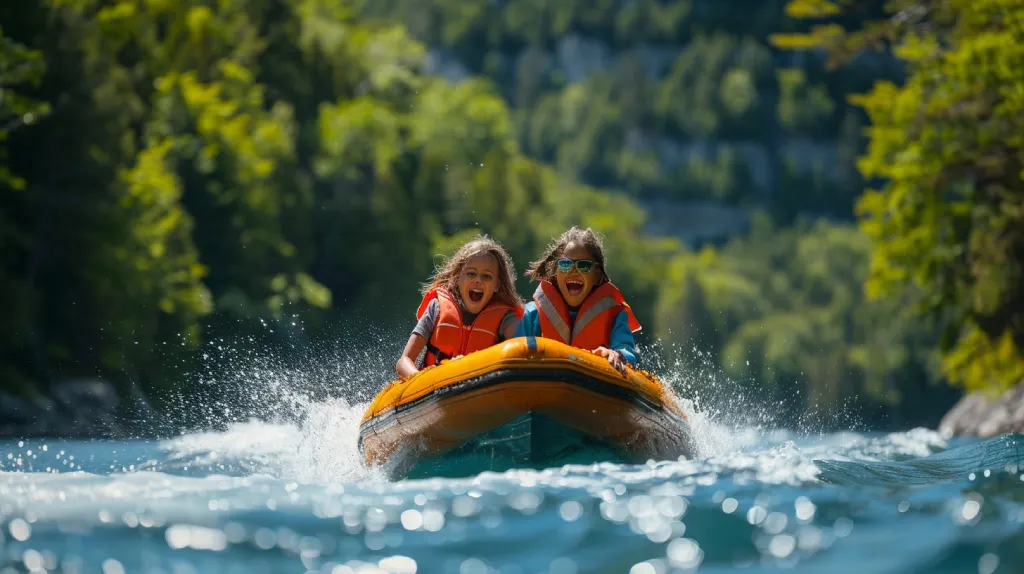
Boater’s Responsibility to the Environment
When boating is done carelessly, the relaxing enjoyment of the water can seriously harm the ecosystem. Boater’s action may show responsibility toward the aquatic environment and greatly reduce their influence on aquatic ecosystems by using environmentally friendly methods.
Maintain Cleanliness in Waterways
- Avoid oil discharge.
- Empty sewage at pump-out stations.
- Use phosphate-free cleaners.
- Don’t litter overboard.
- Dispose of plastic items on land.
- Avoid discarding fishing lines.
Protect the Shoreline and Underwater Vegetation
- Protect habitats: Avoid powerboating in shallow areas to preserve seagrass beds and coral reefs.
- Reduce collision risk: Operate cautiously in shallow waters to avoid harming marine animals.
- Reduce erosion: Follow speed limits and watch your wake near shorelines and in narrow rivers.
Keeping Your Boat Environmentally Safe
To prevent environmental harm, equip your boat with:
- A bucket
- Oil absorbent pads
- A heavy-duty plastic bag
- A bailer or portable pump
- An environmentally-friendly spill kit
Adopt Responsible Practices
- Reduce pollution: Avoid using toxic substances on your vessel or near the water.
- Choose eco-friendly paints: Choose marine-approved paints to reduce harm.
- Prevent spills: Avoid overfilling your fuel tank and clean up spills immediately.
- Keep the bilge clean: Use absorbents instead of detergents to reduce pollution.
- Reduce detergent use: Reduce detergent usage during boat cleaning to protect aquatic life.
- Properly dispose of hazardous materials: Dispose of used batteries and other hazardous materials at designated facilities.
Responsible Boating Advice
- Maintain your boat regularly.
- Keep your yacht clean.
- Promote eco-friendly boating.
- Know the regulations.
- Respect other boaters.
3. Protection of Native Species
Improving Aquatic Biodiversity
The arrival of non-native species into water streams affects the balance of the ecosystem and damage the environment.
Many aquatic invasive species including milfoil, hydrilla, zebra mussels and quagga mussels travel between rivers by hitching rides on boats and fishing gear.
In new environments, they spread quickly, driving out local species and harming aquatic ecosystems.
Guidelines to Stop Invasive Species Spread
- Clean your boat with eco-friendly soap.
- Inspect for invasive species.
- Drain and rinse.
- Use high-pressure water.
- Prevent species spread.
- Empty bait buckets.
- Dry your boat and equipment.
4. Protecting Wetlands
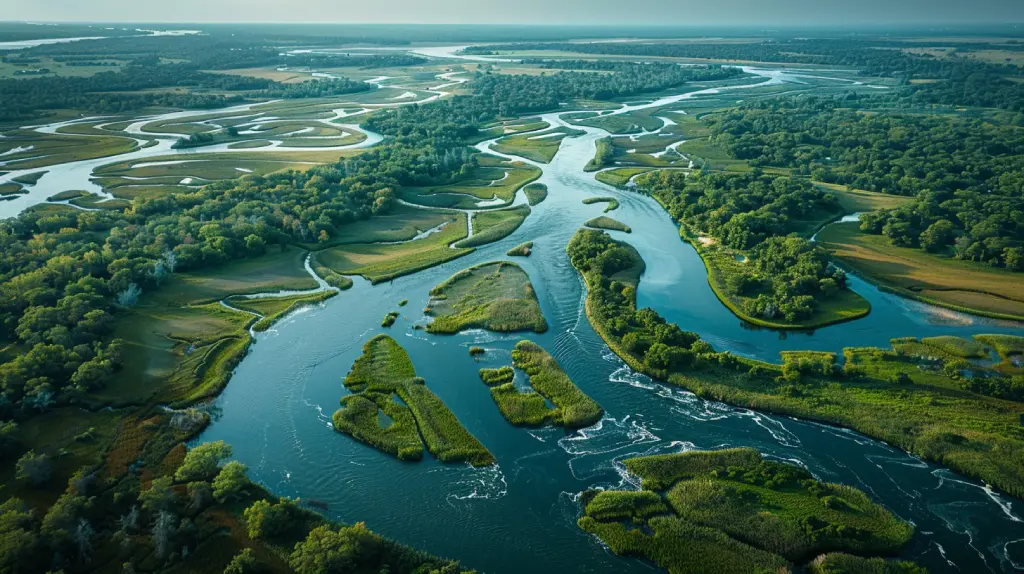
Preserving Aquatic Environment
Super important ecosystems are wetlands. Many plants and animals find homes there, they protect coastal regions from storms, and they prevent soil from washing away. Participating in their conservation and restoration make sure that these significant benefits stay.
Wetlands in Need of Protection
- Participate in wetland restoration projects.
- Educate others about the importance of wetlands.
- Support global wetland conservation efforts.
- Support global marine conservation.
5. Reducing Plastic Waste
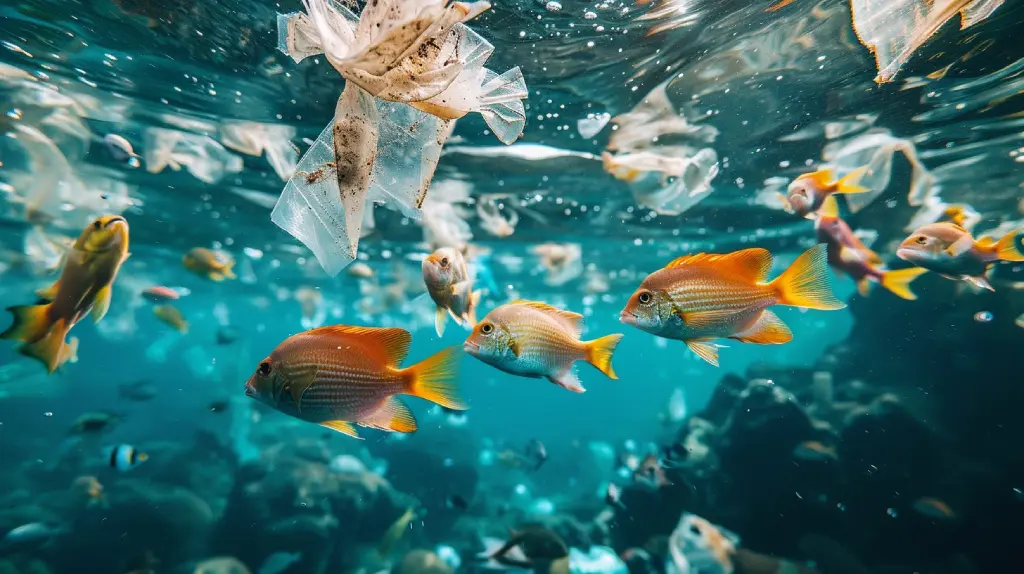
Adopting Recycling and Reusable Alternates
Plastic pollution is a big problem. It suffocates marine life and our rivers are becoming convenient dumps. Each year, about 17.6 billion pounds of plastic make their way from the land into the sea. It’s as if we’re dumping tons of plastic into our oceans all the time.
Choosing less plastic and items we can use again and recycling properly may help and makes us realize that even a single action shows responsibility toward the aquatic environment.
Developing a Daily Practice
- Reduce single-use plastics.
- Choose eco-friendly alternatives.
- Recycle properly.
- Use eco-friendly products.
- Support plastic-free businesses.
- Support ocean plastic recycling.
6. Sustainable Fishing Practices
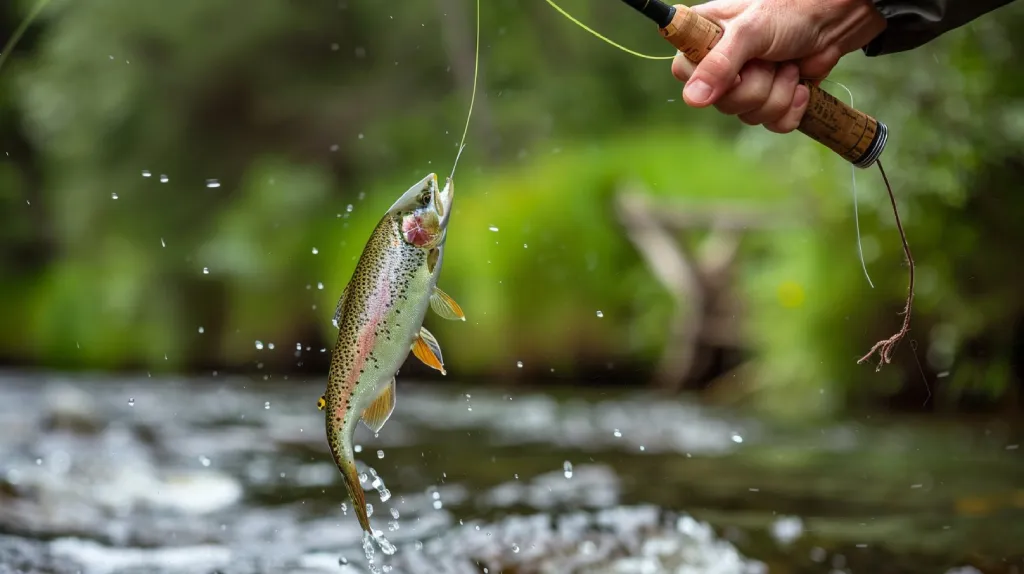
Preserving Aquatic Population
Fishing too much and using harmful methods quickly reduce the number of fish and messes up whole water habitats.
Sustainable fishing is one of the vital actions which shows responsibility toward the aquatic environment and helps fish numbers grow again and keeps water ecosystems healthy.
Fishing Responsibly
- Follow local fishing laws.
- Use sustainable fishing methods.
- Fish during proper seasons.
- Practice catch-and-release.
- Choose responsibly sourced seafood.
- Educate other anglers.
- Support fish habitat conservation.
A sustainable future depends critically on water conservation. It is about making sensible use of water. Saving water help protect our environment and make sure there is enough water for future.
We can contribute to water conservation, environmental protection and aquatic ecosystem maintenance by doing simple things in our daily life and being responsible at home.
- Repair leaks promptly.
- Use water-efficient fixtures.
- Collect rainwater.
- Turn off the tap.
- Run full loads.
- Water your lawn and garden wisely.
- Support water-conscious businesses.
8. Fighting Water Pollution
Protecting Water Quality
Chemical pollution: Chemicals from farms, homes, factories, sewage, and oil spills contaminate water, harming both human health and aquatic life.
Synthetic chemicals and waste: Synthetic chemicals seeping into streams and discharging waste into waters or throwing trash into the water carry serious diseases.
Protect water: Taking action to reduce water pollution is crucial for protecting the aquatic environment and avoid river pollution.
So, whenever this query comes in your mind, which action shows responsibility toward the aquatic environment? Then, this is one of the most crucial action you can embrace in your life to protect water.
Making these choices can protect our water and contribute to responsible action toward the aquatic environment.
- Make conscious choices and reduce chemical use.
- Dispose of chemicals properly.
- Choose eco-friendly products.
- Use harmless and biodegradable items.
- Choose natural products for your yard.
9. Coastal Cleanup Efforts
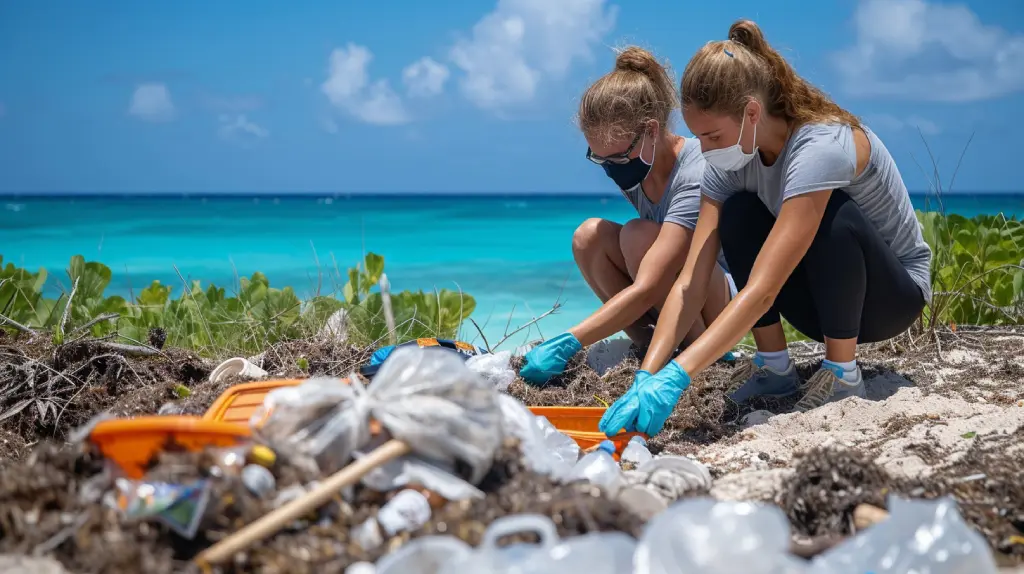
Fighting Ocean Pollution
Trash in the ocean is a significant problem that requires local action to address. Lots of trash enters the ocean annually, posing risks to marine animals and spoiling our shores.
Organizing and helping beach cleanups is a way to stop this, so marine animals don’t get hurt by eating or getting stuck in trash, and our shores stay beautiful.
- Organize a community cleanup.
- Partner with local authorities.
- Dispose of debris properly.
- Picking up trash.
- Share innovative cleanup ideas.
- Support aquatic conservation.
10. Supporting Environmental Organizations
Working together is usually the best way to keep the environment safe. But which action shows responsibility toward the aquatic environment? Perhaps it’s supporting for cleaner waterways or participating in beach clean-up efforts.
Environmental organizations play a crucial role in promoting sustainability. Supporting them contributes to a collective effort to protect our environment.
Ways to Contribute

FAQ's
Which action shows responsibility toward the aquatic environment?
To protect our aquatic ecosystems, it’s important to avoid polluting waterways with harmful substances.
Which product is responsible boaters use cleaning products that wont harm lakes or rivers?
Non-phosphate detergents are a safer choice for boat cleaning. Phosphate pollution can disrupt aquatic ecosystems, so making the switch to eco-friendly products can help preserve our lakes and rivers.
